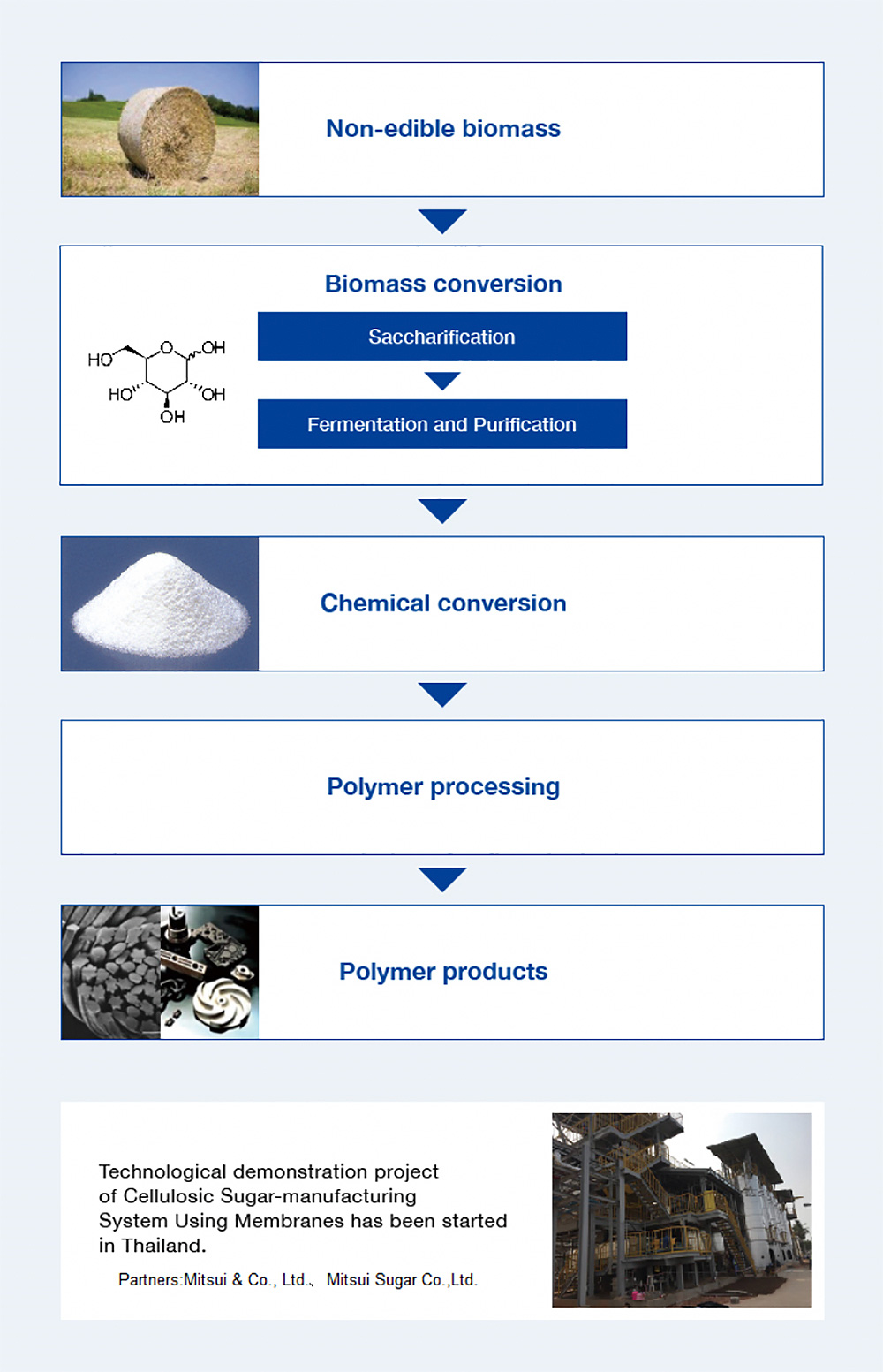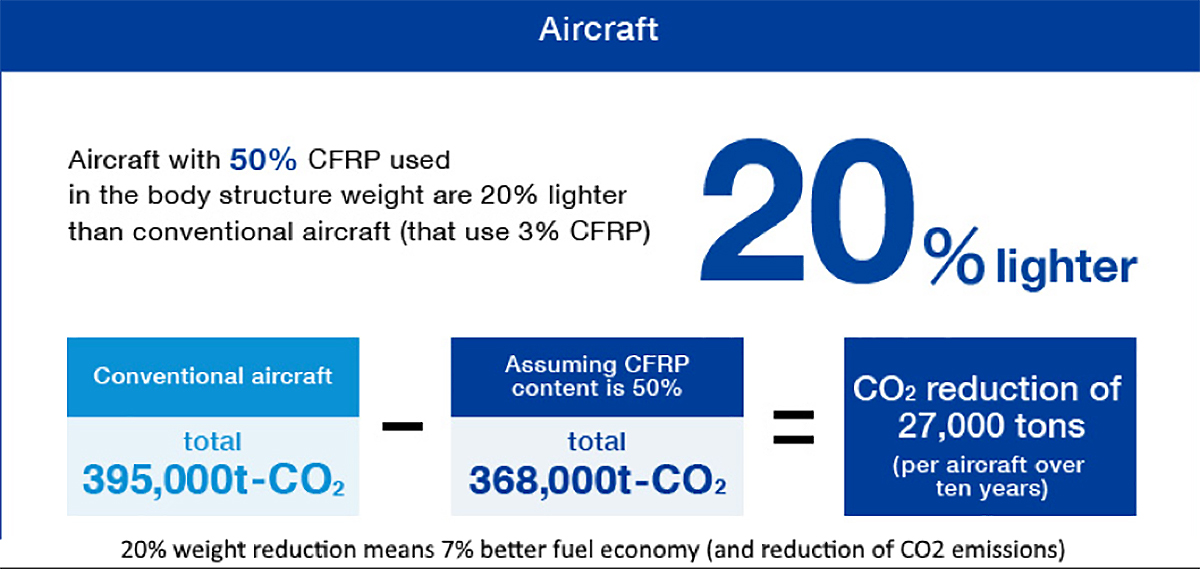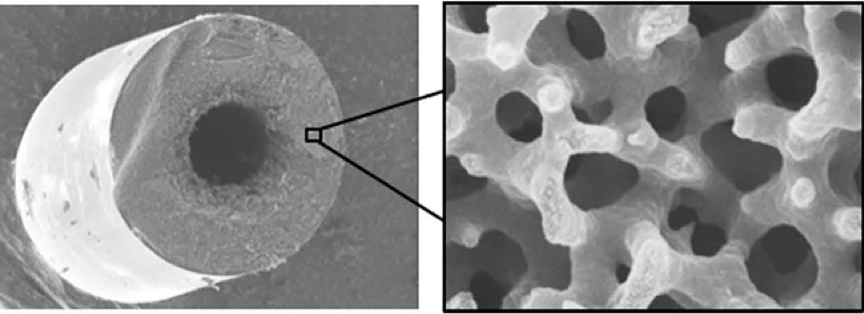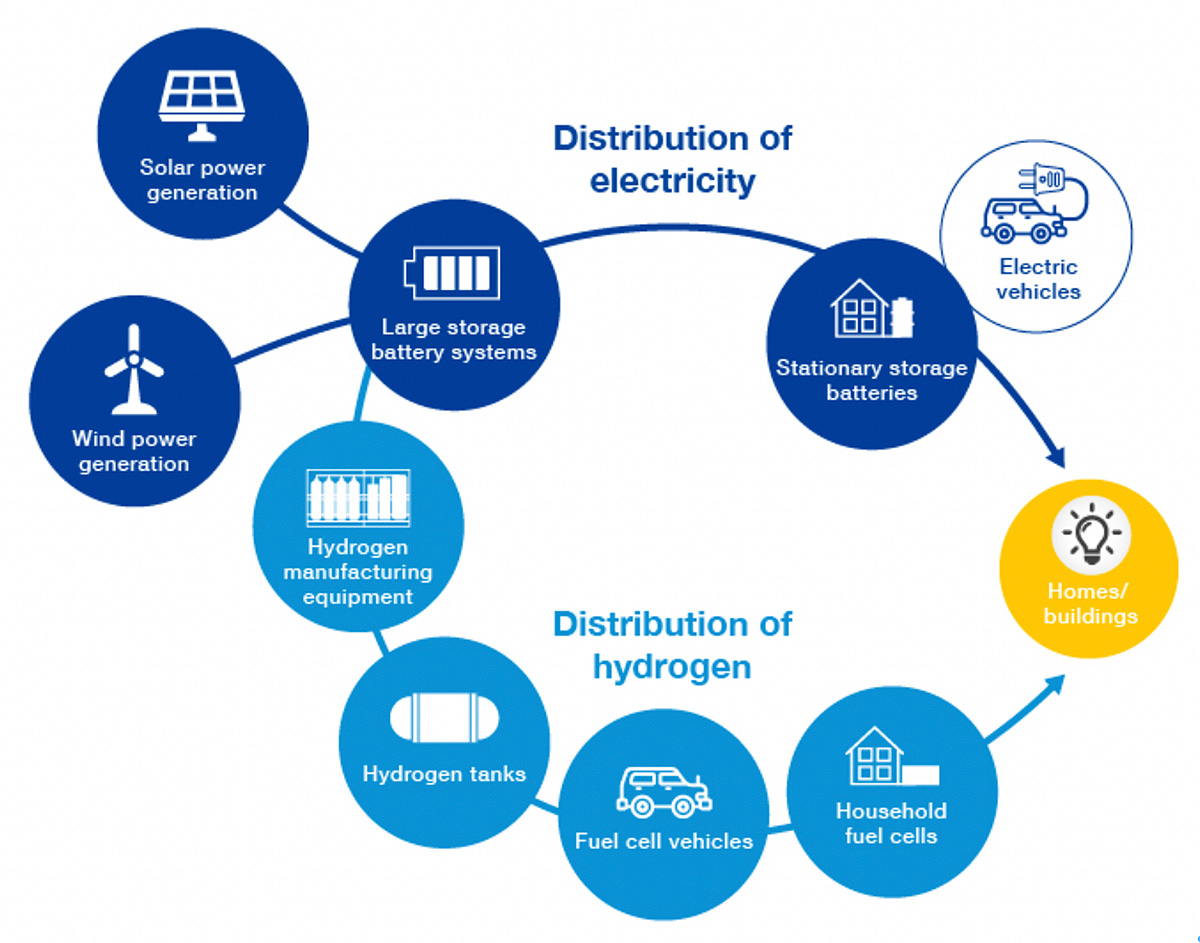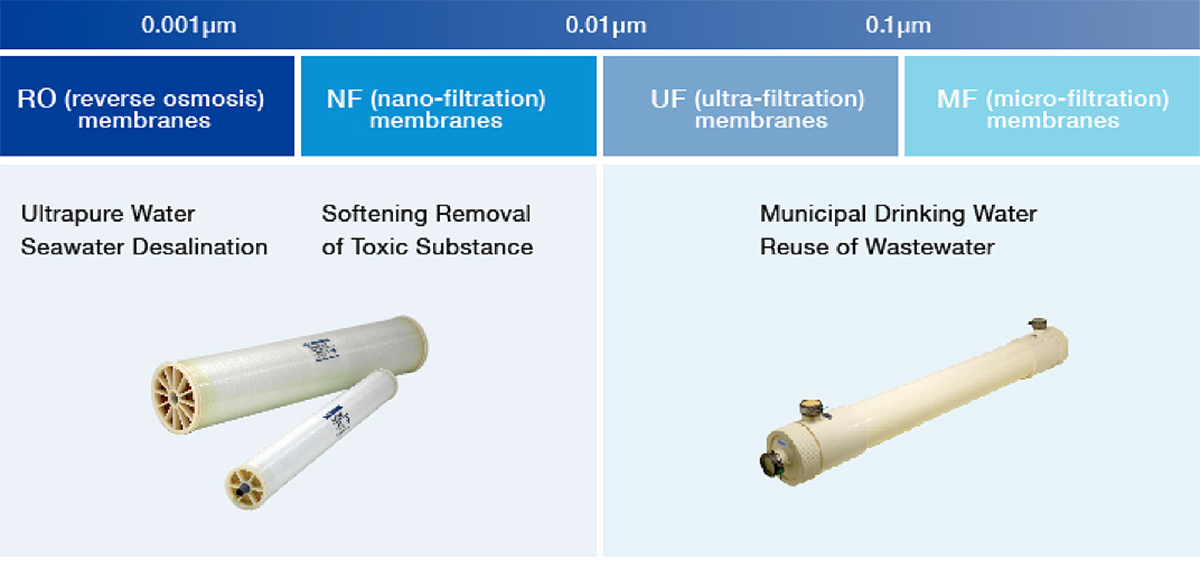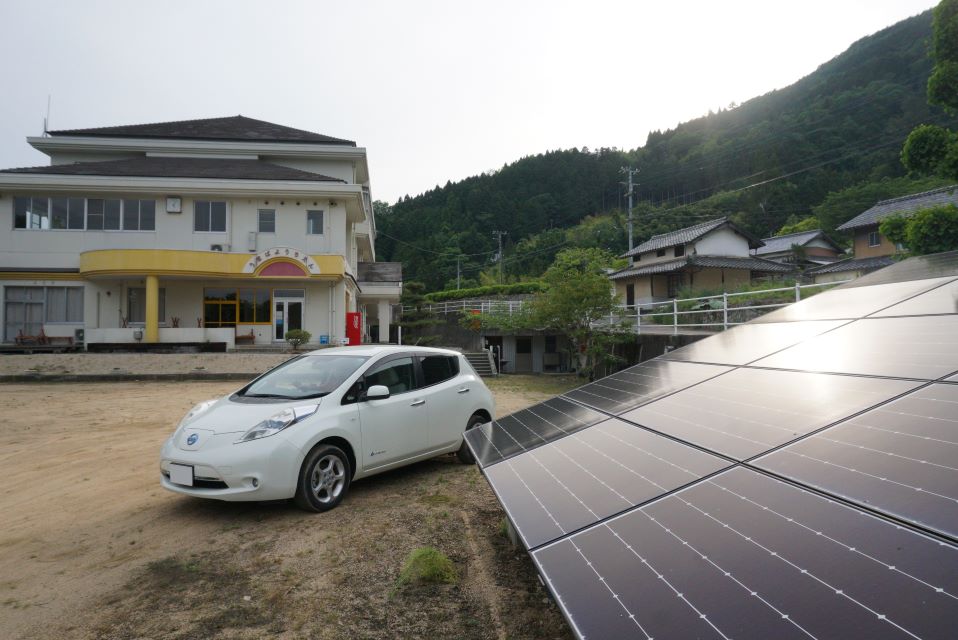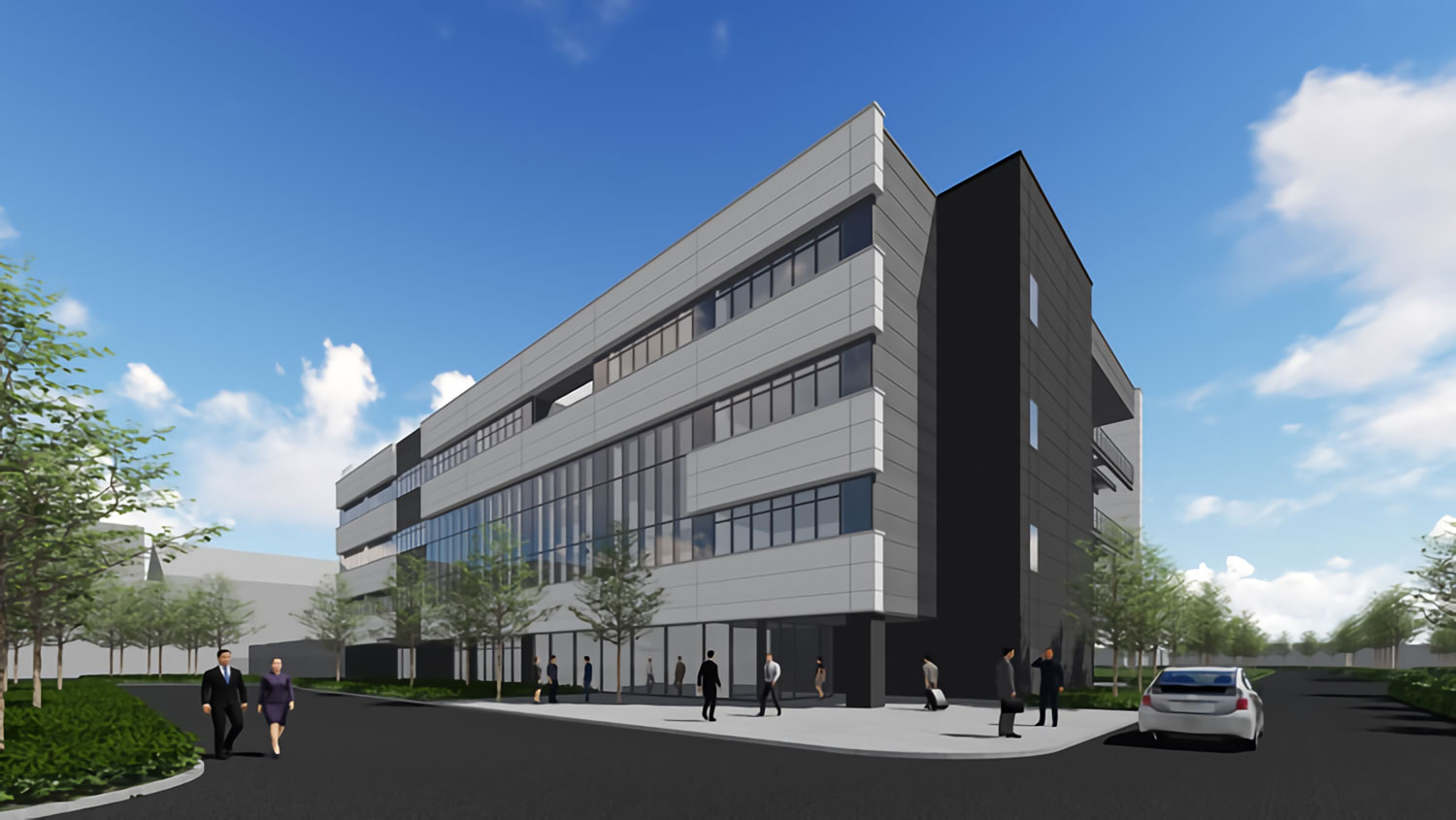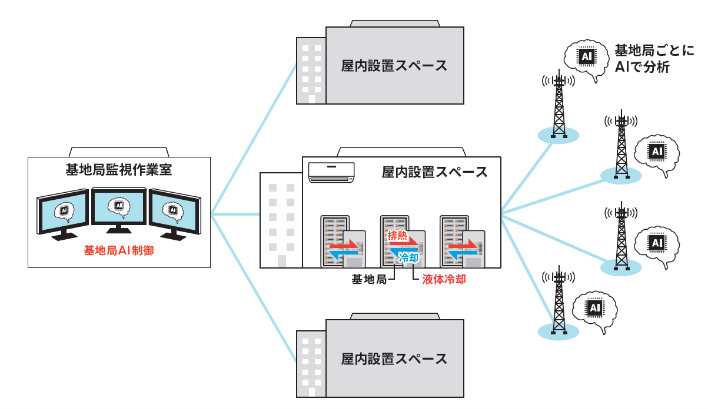Creating non-petroleum materials
Toray Industries, Inc.
Outline
By combining membrane separation technology with biotechnology and organic synthesis technology, Toray is pursuing research and development of membrane-integrated bioprocesses that use separation membranes for water treatment in saccharification, fermentation, and purification processes. This technology makes it possible to produce raw sugar from non-edible biomass and dramatically improve fermentation efficiency, helping to realize non-petroleum materials.
Toray is demonstrating the usefulness of membrane-integrated bioprocesses through scaled-up verification and is establishing saccharification, fermentation and purification technologies using non-edible biomass.
By chemically converting plant-derived products obtained by membrane-integrated bioprocesses into polymer raw materials, and by introducing them into the existing supply chain, it is possible to reduce total CO2 emissions and shift from petroleum resources to plant-based raw materials.
Supplementary information
Toray Group Sustainability Vision
https://www.toray.com/sustainability/pdf/sustainability_e.pdf
Other Innovation Challenges
Better Energy Efficiency with Carbon Fiber Composite Materials
Toray Industries, Inc.
Gas separation using porous carbon fibers with continuous pore structure
Toray Industries, Inc.
Helping to realize a clean energy society with hydrogen utilization technology
Toray Industries, Inc.
Helping to reduce CO2 emissions through seawater desalination using RO membranes
Toray Industries, Inc.
Similar Innovation Challenges
Accelarating the penetration of renewable energy resources with “Open Energy System”
Sony Group Corporation
Achieving net-zero carbon emissions from plant factories using full artificial lighting
Taikisha Ltd.
Advanced technology for buildings providing energy-saving and comfortable indoor environment (under Net Zero Energy condition)
Mitsubishi Electric Corporation
AI control reduces base station power consumption by up to 50%
KDDI CORPORATION



